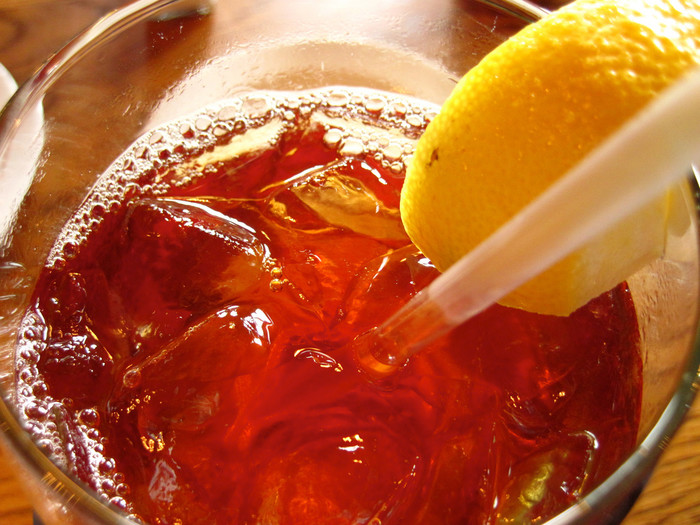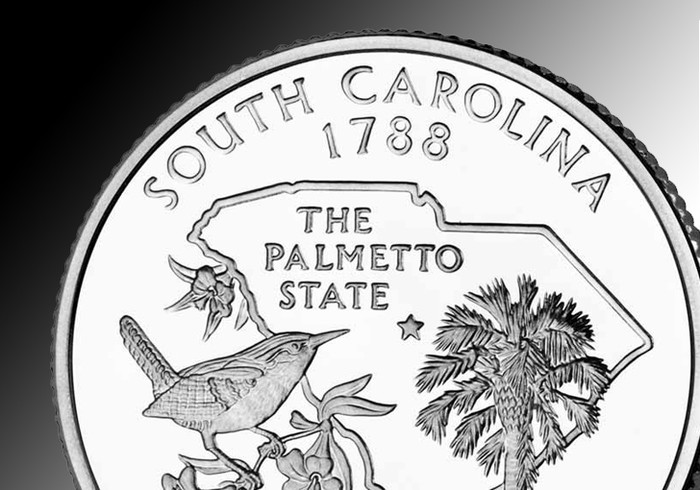
Update January 25, 2012: The Weekly Surge has an extensive report on the roots of SOPA and our protest. It also talks about what's next for SOPA/PIPA. Read more here.
Update January 24, 2012: The Horry County Business Journal has a nice write-up on our protest. Check it out.
Update January 20, 2012: House Judiciary Committee Chairman Lamar Smith today issued a statement in response to the Senate decision to postpone SOPA.
Senator Harry Reid also tweeted that PIPA was being pulled. Chairman Smith's statement is below.
“I have heard from the critics and I take seriously their concerns regarding proposed legislation to address the problem of online piracy. It is clear that we need to revisit the approach on how best to address the problem of foreign thieves that steal and sell American inventions and products.
“The problem of online piracy is too big to ignore. American intellectual property industries provide 19 million high-paying jobs and account for more than 60 percent of U.S. exports. The theft of America’s intellectual property costs the U.S. economy more than $100 billion annually and results in the loss of thousands of American jobs. Congress cannot stand by and do nothing while American innovators and job creators are under attack.
“The online theft of American intellectual property is no different than the theft of products from a store. It is illegal and the law should be enforced both in the store and online.
“The Committee will continue work with copyright owners, Internet companies, financial institutions to develop proposals that combat online piracy and protect America’s intellectual property. We welcome input from all organizations and individuals who have an honest difference of opinion about how best to address this widespread problem. The Committee remains committed to finding a solution to the problem of online piracy that protects American intellectual property and innovation.”
The House Judiciary Committee will postpone consideration of the legislation until there is wider agreement on a solution.
Update January 19, 2012: While the battle isn't quite over, both lawmakers and locals learned more about the SOPA/PIPA issue.
First, we'd like to thank Waccamaw Publishers, WPDE and WBTW for reaching out to us for a local perspective on this global issue. The Waccamaw write-up is here and here are those video packages:
While our site was "dark", we still tracked the Internet rumblings over the coordinated protest and we shared the positions of South Carolina representatives on Facebook. Essentially, Jim DeMint and Tim Scott don't support the current versions of the bills. Senator Lindsey Graham co-sponsored the PIPA bill but did tell the Charleston Post and Courier he was open to revising the current version. Read more here.
First Report: TheDigitel will go dark on Wednesday, January 18, 2012 from 8 a.m. until 8 p.m. in support of an Internet that is free of corporate and government censorship.
Wednesday is American Censorship Day and aimed at fighting the flawed pieces of legislation that are the Stop Online Piracy Act (SOPA) and Protect IP Act (PIPA). They have the power to drastically change the Internet that we hold dear, and are currently under consideration with strong support in both the House and Senate
Sites, like TheDigitel, that link to information and allow a free flow of ideas through our Open Community of contributors and bloggers are in danger. As such, we are proud to stand alongside Internet giants like Google, Facebook, and Reddit, among thousand of others, and with more than one million citizens who have contacted their elected representatives.
You can join in with the South Carolina conversation here.
Learn more about the problem below.
The title of the bill is: H. R. 3261 -- To promote prosperity, creativity, entrepreneurship, and innovation by combating the theft of U.S. property, and for other purposes.
It is also known as The Great Firewall of America.
It was introduced into the US House of Representatives on October 26, 2011 by Lamar Smith (R-TX) and a bi-partisan group of twelve co-sponsors.
It is known as The Stop Online Piracy Act (SOPA) and is before the House Judiciary Committee. The bill is designed to expand the ability of the Department of Justice to fight online copyright infringement and counterfeit trafficking. It builds on the Senate bills, the PROTECT IP Act of 2011 and the Commercial Felony Streaming Act of 2011.
It is intended to give the DoJ, or a copyright holder, the ability to take legal action and seek court orders against websites accused of having limited purpose or use other than enabling or facilitating copyright infringement. Actions taken can include demanding that search engines and social networking sites block access to the targeted site, that payment services and advertisers cease doing business with the accused site, and that internet service providers block access to the site through the domain name system.
There is a section designed to increase penalties for selling counterfeit drugs, military materials or consumer goods, and the bill makes unauthorized streaming of copyright material a felony punishable by five years in prison. There is also a provision to grant immunity to internet service providers that volunteer to take action against sites accused of copyright offenses, and makes a claimant liable for damages for knowingly misrepresenting that a website is dedicated to infringing.
What is PIPA?
PIPA, if passed, will give U.S. corporations and the government the right to seek affirmative legal action with any website that they see as enabling copyright infringement weather of U.S. origin or not. Here is a breakdown of all that they will have the power to do.
- Force U.S. internet providers to block access to websites deemed as enablers of copyright infringement
- Seek legal action by suing search engines, blog sites, directories, or any site in general to have the black listed sites removed from their website
- Will be able to force advertising services on infringing websites, and those supporting of them, to remove them from their advertising accounts
- Companies will also have the power to sue any new websites that get started after this bill is passed, if they believe that they are not doing a good job of preventing infringement on your website
What sites are at risk with SOPA/PIPA?
Some of the world’s most popular sites could be shut down or seriously changed for the worse due to SOPA and PIPA. Sites like Facebook, YouTube, Twitter, Reddit, DIGG, MySpace, and Vimeo are just the biggest names. Those at the most risk are the smaller sites, like TheDigitel, that do not have millions in the bank to fight erroneous copyright claims.
Sites would have to censor their users or cease operation since they become liable for everything those users post. Such drastic measures can be taken for just one infringing link. Everyday users could go to jail for five years for posting any copyrighted work. The wording of the law is so ambiguous that simple infractions like posting a video of a karaoke performance, first dance at your wedding, or a cute child singing the newest pop song could result in punishment.
What can be done?
The Senate is scheduled to vote on Tuesday, January 24, 2012, and unless 41 senators block PIPA, it could pass and bring an end to the free and open exchange of ideas on websites. If you oppose, head over to FightForTheFuture.org, fill out the form, and send it to our representatives in Washington.
Fortunately, there has been some recent good news. Thanks to a petition over at WhiteHouse.gov, the Obama administration has stated they will not support SOPA as it currently stands and has threatened a veto. Further, House Majority Leader Eric Cantor has killed SOPA, stopping all action on it. He hasn't given a reason why.
You can read the White House response here.
In Conclusion
This is a bipartisan issue with support for and against SOPA on both sides of the aisle. This isn't about right or left. It's about right, wrong, and most importantly - freedom.
Thank you for your support,
The entire Digitel family
Related:


